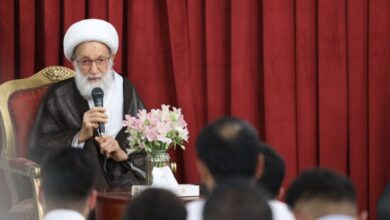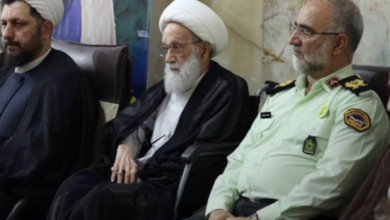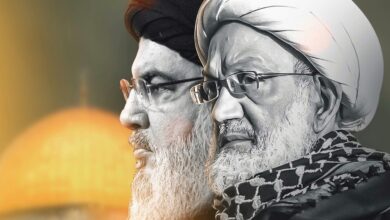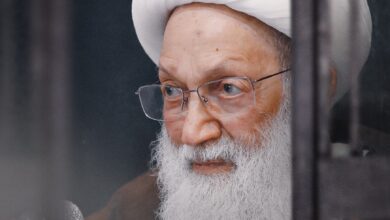Ayatollah Qassim : Fact-Based Questions

The following is a translation of an op-ed written by Ayatollah Sheikh Isa Qassim, a leading religious figure in Bahrain.
Politics and religion could meet comprehensively, and they could separate on various levels. This separation could be on both the theoretical and implementation levels together. But in some cases, it could be limited to the level of implementation as politics meets religion theoretically, but may practically go against it.
The two can only meet comprehensively if politics is dissolved into religion and used to raise the human, or if, otherwise, religion is dissolved into politics and used to achieve certain benefits even if they were against religion and the benefits of the individual and society. In one occasion, the two would meet in their goals, values and methods and, in other occasions they could diverge.
The notion of separating politics from religion imposes that religion cannot have any power over politics, furthermore, that it must share no common area with politics at all.
And the question directed to this kind of vision is: can politics interfere in religion and impose recommendations? Or does it approve of the independency of religion, just as like the independency of politics?
Practically, in most areas of the Islamic nation, politics interfere in religious life in what contradicts and conflicts its provisions.
The only motivation to this interference is to see religion as a tool in the hands of politics to be used to serve its goals and achieve its agenda. And this would mean that the provision of politics replaces and comes forth before the provisions of God, or it would mean that there is no consideration to the provisions of God.
So is this what Islam is? A question that every Muslim has the right to ask his Muslim brother. Can a Muslim claim the provisions of man can be put forth before the provisions of God? Can an Islamic cleric find the smallest proof from the Quran or the Sunnah that Islam must not interfere in politics? Let alone the independency of politics and leading of religion?
How can this be when the prophet Muhammed (pbuh) established the Islamic state and was its jurist in all affairs? The Quran says: {But no, by your Lord, they will not believe until they call you to arbitrate in their disputes, and then find within themselves no resentment regarding your decisions, and submit themselves completely}.
Nevertheless, what is worst in the political interference in religious life is that it is imposed through security-force and the power of misleading and destructive media to raise generations that believe in the separation of religion from politics and worse; that it is right for politics to interfere in religion. For generations to believe in criminalizing any religious interference in politics, including criticism of political oppression and evil would mean that there is a dangerous re-creation of Islam through radical fabrication that drops its value.
But hope is bigger that the nation will not fall for this trick and will respond to its God.




